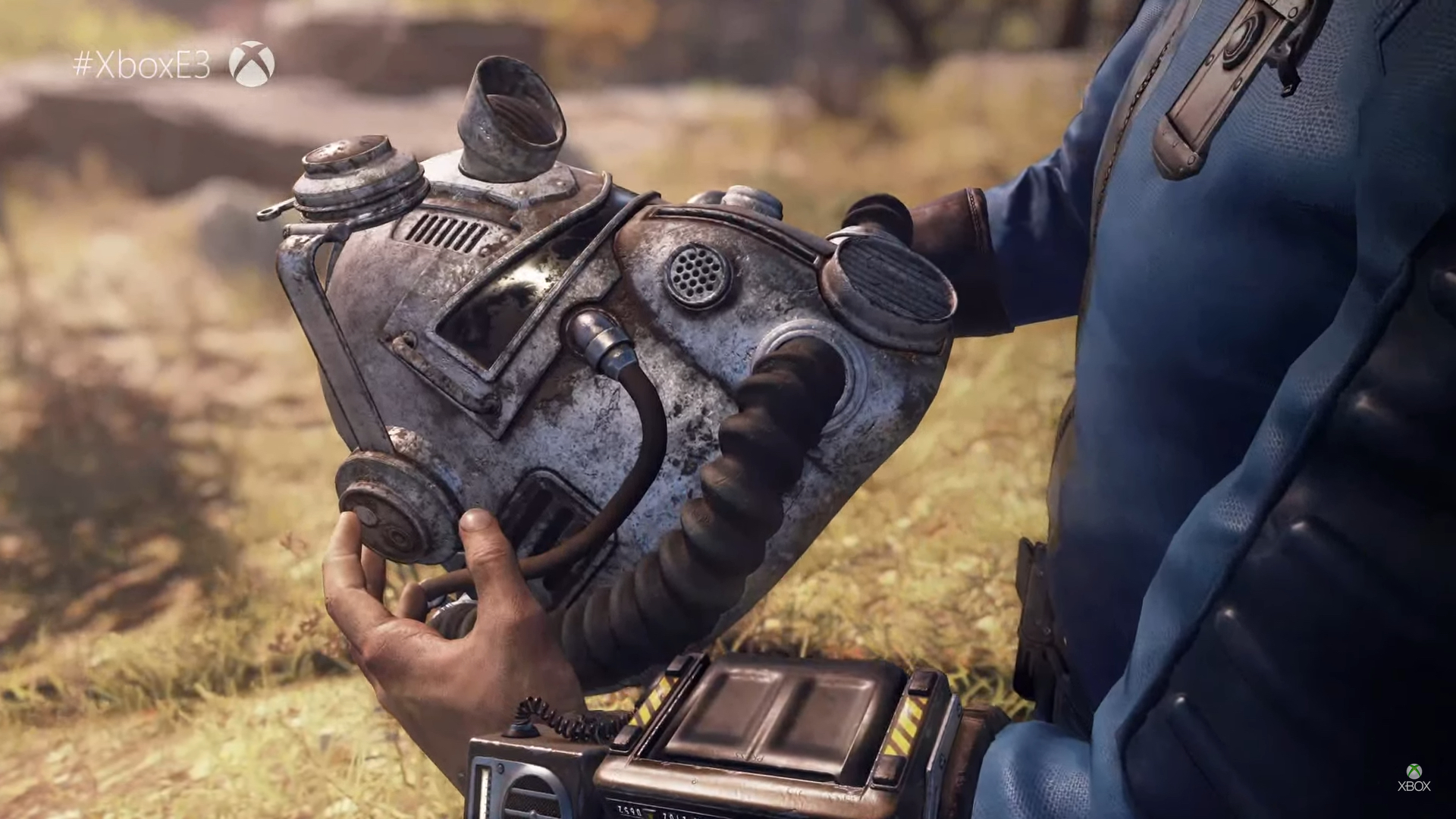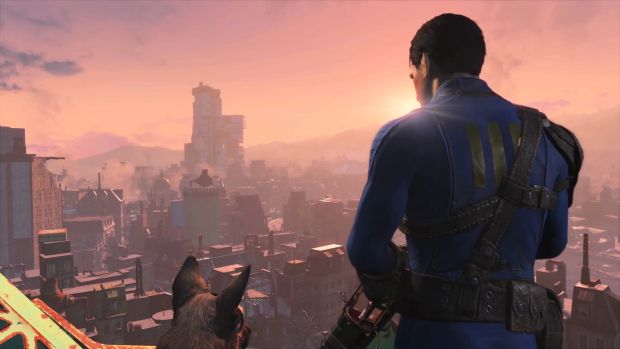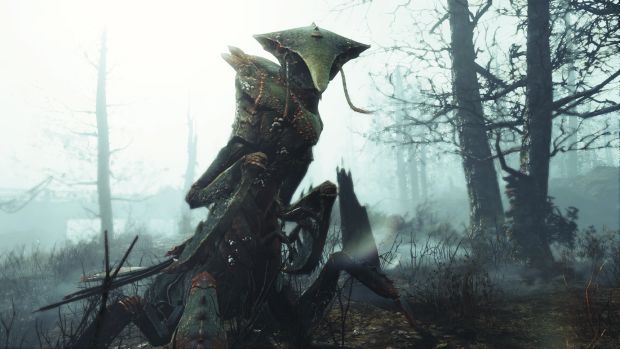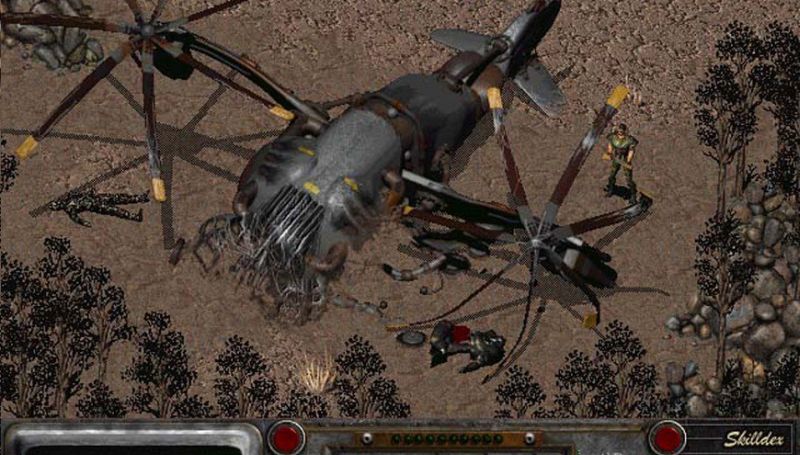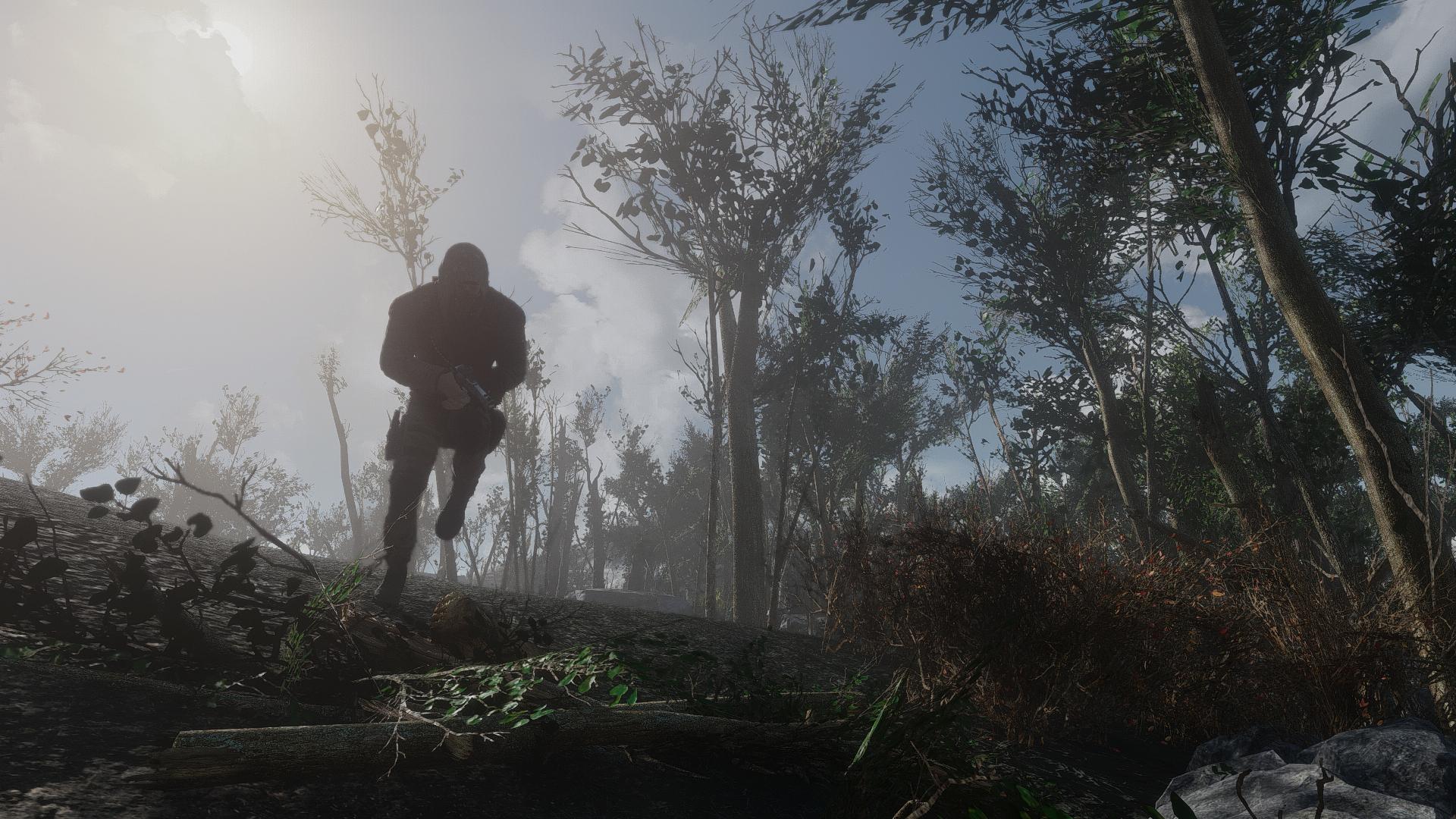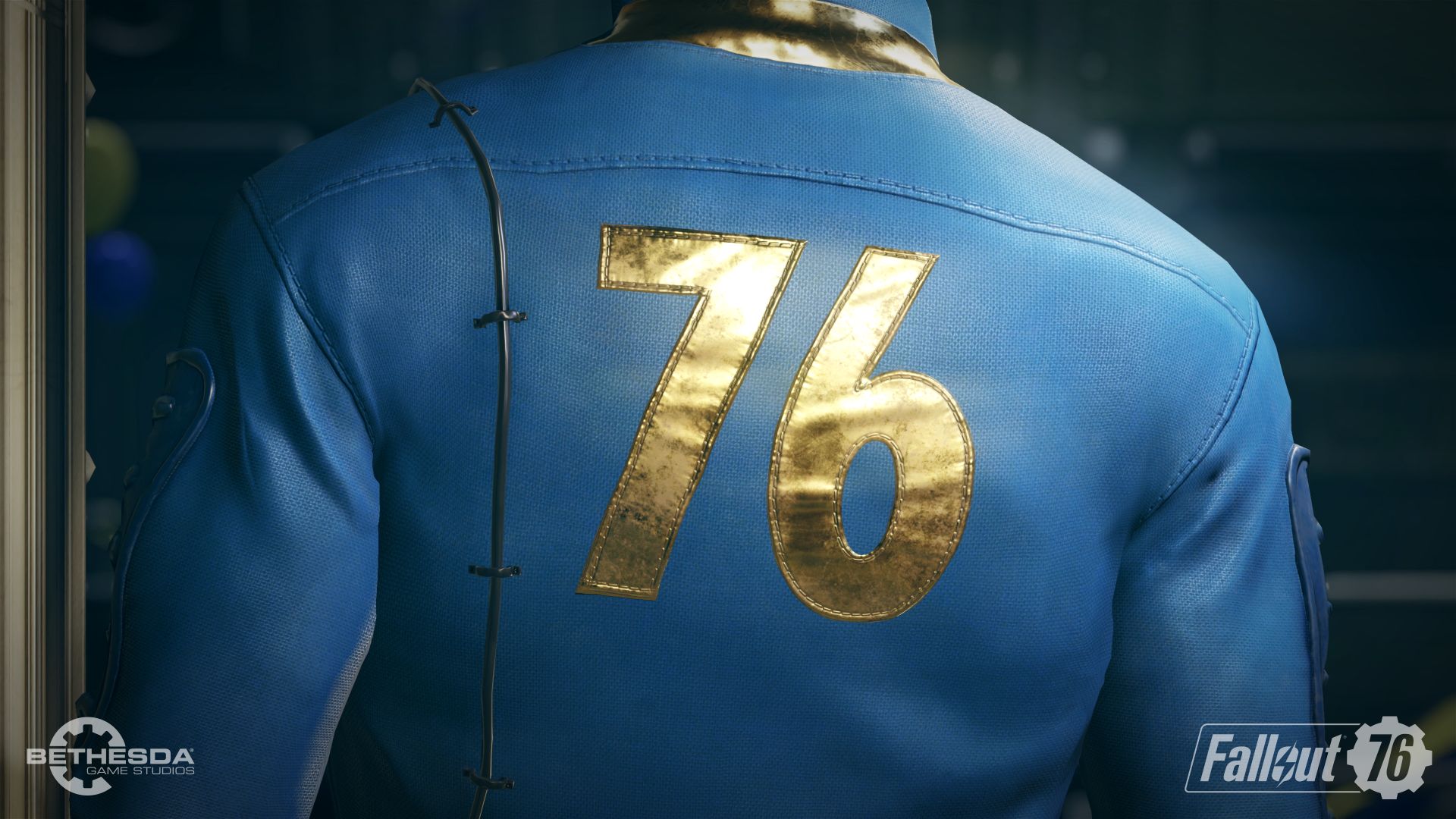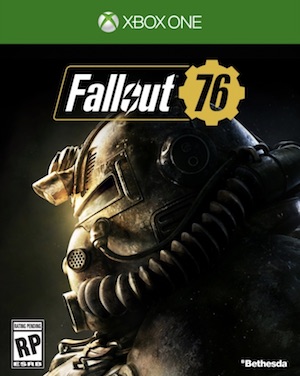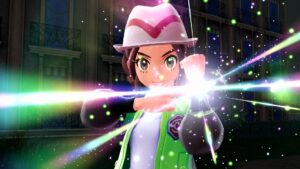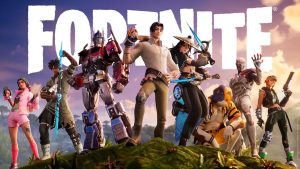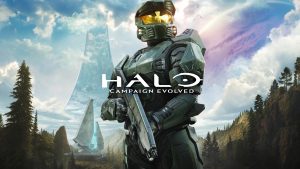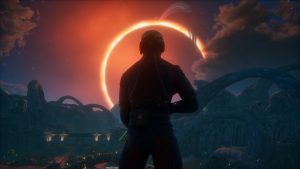
In 2015, life was weird. Relationships were weird. Not quite being on the cusp of 30 but still vaguely aware the day was coming, I tried to make things work with this girl (spoiler: It didn’t). While that year marked a series of personal changes, it was a monumental one for the gaming industry. The Witcher 3: Wild Hunt was winning the hearts of many open world, action RPG fans. At the time, however, only hardcore players were more willing to admit to its faults. It was also the year that Metal Gear Solid 5: The Phantom Pain, Hideo Kojima’s final Metal Gear title and the epic conclusion to his legendary series, also released. However decorated those two games would be, 2015 was simply incredible to behold because Bethesda had announced a new Fallout.
A new Fallout.
"Having been a hardcore fan of open-world RPGs and looter shooters in general, the improved gunplay and setting really pushed me to pick it up."
The last “real” open world from Bethesda was The Elder Scrolls 5: Skyrim. That was in 2011 though and it felt like forever ago. Skyrim had its share of DLC and mods, support for the latter continuing to this day. It was impactful enough to be compared to every single open world game from Dragon Age: Inquisition to Just Cause 2. Skyrim was flawed and buggy but its brilliance couldn’t be denied. A new Fallout though? There hadn’t been a Fallout title from Bethesda since Fallout 3 in 2008. Obsidian filled that gap in 2010 with Fallout: New Vegas but the true next step, the series’ next-generation debut was yet to be seen. But in June, it finally happened – Fallout 4 was announced. We even got a reveal trailer and despite criticism of the visuals, fans were generally upbeat about what was coming.
For me, having grown up in an age where XCOM was always an isometric tactical strategy game, Bioware’s best game would always be Baldur’s Gate 2: Shadows of Amn and Fallout always offered unprecedented character customization and role-playing, every Fallout game from the third onwards just felt strange. Not bad but strange and different.
The more I saw Fallout 4, the more I liked it. Having been a hardcore fan of open-world RPGs and looter shooters in general, the improved gunplay and setting really pushed me to pick it up. I even told the girl in question at the time that my availability would be limited because gosh darn it, Fallout 4 was coming. Hype levels weren’t set to critical like many, many fans but I was suitably excited.
Whether it was the emotional stress at the time or just being too busy with other things, I didn’t really spend much time with Fallout 4. I still kept pace with the game because it interested me and make no mistake, so did millions of other players. There were 1.2 million copies sold in the first 24 hours – Bethesda had shipped 12 million units to retailers in that same period. By early 2017, Fallout 4’s sales had already surpassed Skyrim’s within the same time frame. It was an uber-popular game. However, slowly but surely, fan sentiment began to shift.
"Fallout 4 was still one of the most played titles on Steam but it was clear that hardcore fans were angry at worst, disillusioned at best."
“Fallout 4”, for all intents and purposes they said, “Is a good game. But it’s a bad Fallout game.” This phrase was bandied about forums and Reddit threads for years. What did it mean? It meant that while Fallout 4 was a competently made, even enjoyable, experience for any player. However, if you wanted a Fallout game, you were completely out of luck. A wave of disappointment slowly began to form. The questions just wouldn’t stop.
Why was Fallout 4’s story so similar to its predecessor? Why did it feel so one-note and unexciting? What happened to Perks and Traits? Why was the S.P.E.C.I.A.L. system relegated to just being a straight upgrade for your character instead of a means to craft one’s individual personality? What happened to speech checks and dialogue choices? Why were so many dialogue choices simplified and seemingly presented similar resolutions to conflicts? Why did the factions feel so one-note and boring? Why was the world so uninteresting? Why weren’t the side quests like The Witcher 3? Why did the game as a whole feel a bit on the short side, especially with regards to the story? What happened to the lore? Why does the game put so much emphasis on looting and shooting? What the heck was up with all the building?
Fallout 4 was still one of the most played titles on Steam but it was clear that hardcore fans were disillusioned at best. For the angry few, the game felt like it was missing something. Some who enjoyed the game even reflected on their time spent with it and admitted that it wasn’t as good as they first thought. You could chalk that up to pressure from the most frothing faithful though.
Hilariously, I bought the Season Pass for Fallout 4 once I heard about its content. The overall DLC sounded fine and Bethesda was going to increase the price in exchange for delivering even more. I was sold because, for the limited time I put into Fallout 4, I generally liked the game. I didn’t walk into it expecting a Fallout experience as much as a regular FPS/RPG.
Over time, I started indulging in the game some more and really burning through the base story. Many of the inherent flaws of this “good game” became more obvious. Quests like Museum of Witchcraft and Dunwich Borers, hailed for being some of the best, were pretty good but nothing over-the-top amazing. Exploring the world and having these random experiences or happening upon significant lore did feel great. The urge to complete the story was there but so was simply wasting time in the Commonwealth. I struck up a good balance and eventually by early 2017, I had finished Fallout 4. It was a nice, solid “7.5” experience. Nothing supremely exceptional but a good fun game nonetheless. Even with 70 hours spent, I feel like I could go back and kill some more time without too much thought.
"With the announcement of Fallout 76 and its reveal as an online title with survival, building and co-operative elements, the discussion has cropped up again. “Fallout 76 isn’t a real Fallout title,” they say."
It’s funny to look back and think about it because even with DLC like Far Harbor, Fallout 4 has a generally lamentable reputation. Many fans have accepted what it is, acknowledging that it will never be more than the sum of its parts. Others try to find the fun in its gameplay loop while messing about with mods and other enhancements. However, the general feeling of Fallout 4 betraying what the classic games offered – turning into what many feared Fallout 3 would become in terms of oversimplification and the removal of key gameplay elements – seemed to permeate among the diehard fanbase. For someone like me who never really experienced Fallout despite understanding the significance of the classic games, I had fun with it, acknowledged its faults and then moving on to other games. How the player base felt to see their favourite franchise become something that was, for lack of a better word, “different” is understandable (though the blind vitriol directed at the developer was excessive, to say the least).
With the announcement of Fallout 76 and its reveal as an online title with survival, building and co-operative elements, the discussion has cropped up again. “Fallout 76 isn’t a real Fallout title,” they say. It’s not even a traditional Bethesda Fallout game since the Pipboy no longer results in sweet slow-mo kills, bruh! But then you could also nuke other people, which is totally not cool and also lore-breaking, darn it! There are many different complaints to be had honestly.
However, many also felt this would be an interesting step forward. If players wanted to role-play as certain characters like merchants or even the Minutemen, they could do that. Pairing up with other players wasn’t necessary and though NPCs with their intricate backstories weren’t available any more, random encounters with real players while exploring this massive wasteland could lend to unique experiences. After all, we’ve all played the bog-standard open world Bethesda RPG with its radiant side-quests and faction quests. We’ve all experienced the open world formula of The Witcher 3, Horizon: Zero Dawn and Assassin’s Creed Origins. The developer is also working on Starfield and The Elder Scrolls 6, which will be single-player efforts. Why not try something totally different, especially if it will have free content (even the paid cosmetics can be earned through playing) and single-player servers with mod support?
However, I can’t help but ask why this cycle keeps repeating, especially with Fallout. \Bethesda first acquired the license after initial publisher Interplay went bankrupt. Black Isle Studios, known for the Fallout titles and other classic RPGs like Icewind Dale, also subsequently shut down. You could theorize that Bethesda pressured Interplay into giving up the IP purely for its own greed, turning it into something it’s not. For better or worse though, Bethesda put in the money for the IP. It dedicated the time and resources to create this large, open world RPG/FPS hybrid and then marketed it heavily. The title very much could have failed especially given the buzz from hardcore fans about how much it differed from previous titles. Instead, Fallout 3 was a success. Aside from the numerous, justified complaints about bugs, some fans of the classic games seemed pretty okay with it as well.
"Fallout 2 is when the series truly began to come into its own. Some may look back and criticize its shift towards twisted American culture, humour and overall wackiness."
What was it then about Fallout 4 that broke the camel’s back? For that matter, when looking at future titles like Fallout 76, what constitutes a “real” Fallout game when the discussion crops up? What do many of the fans actually want from Bethesda Game Studios? Is there a specific reason it’s not being provided to them (besides the obvious urge to do something different)?
The first Fallout was intriguing for many reasons but at its core, it had severe issues. Combat wasn’t so much tactical as a crap-shoot and the user interface wasn’t very good either. What the game really nailed was the look and feel of a true, post-apocalyptic wasteland. That feeling of oppression and loneliness, of the world having truly ended, was conveyed amazingly well. The gameplay hook of Fallout was in the sense of freedom that it offered courtesy of its S.P.E.C.I.A.L. system, Skills, Perks and Traits. While S.P.E.C.I.A.L. was the base of a character’s stats, it was really meant to augment your base Skills. The Skills dominated pretty much every single decision made throughout the game, from how effective you were at lock-picking to whether certain options appeared (skill-checks essentially). The number of points in a particular stat was also important but the Skills really opened the game up in terms of variety.
From there, players could imbue either benefits (via Perks, which were improved less frequently) or drawbacks (via Traits, which offered something good but sandbagged you with some issues, thus incentivizing certain builds while discouraging others). Skills are important, no doubt, but Bethesda also created the game to let players approach situations in any way they so pleased. Yes, a lot of solutions could end up with the same bottom line, but the overall effect on player agency – especially when Karma and Reputation are thrown in – can range from subtle to game-changing. Even if Wasteland in 1988 offered a persistent world that was constantly changing from your actions, Fallout took it even further as exemplified with Fallout 2.
Fallout 2 is when the series truly came into its own. Some may look back and criticize its shift towards twisted American culture, humour and overall wackiness. However, Fallout 2 embraced the madness that the post-apocalyptic landscape offered, letting players take on any number of character roles within its confines and play the game however they wished. The sheer freedom of character customization combined with Skills, Perks, Traits and the S.P.E.C.I.A.L. system made it a dream come true for RPG fans. It didn’t hurt that combat felt more enjoyable as well.
"Again, don’t take this as a sweeping generalization or criticism of Fallout 4 as a whole. The game was still pretty fun to play."
Fallout 3, for all intents and purposes, started each player out with the same origin story. While having the same starting point in a game can be handled magnificently well (Divinity: Original Sin 2 is a good contemporary example), it’s player choice that brings all the wrinkles and little touches that become so memorable. Fallout 3 made a big deal about its Prologue, setting up the character’s relationship with their father in a strong manner. It also pushed a fair number of choices that could have consequences. Finally, the wasteland felt like a disconnected entity throughout all this. When venturing forth, Fallout 3 could be seen as opening up. Say what you will about the story or the lack of player agency, the essential systems like Skills, skill-checks, Karma, S.P.E.C.I.A.L. and so on were intact.
What did Fallout 4 get wrong though? It’s first important to note what player agency means. It’s the player’s ability to impact the world around them, either through the design or gameplay. From that perspective, Fallout 4 had a few moments of brilliance with regards to agency. Choosing your faction did fundamentally affect the game world, even if it didn’t really alter the ending all that much. How you acted around certain companions could determine whether different options – like Curie receiving a human body or Cait being free from addiction – could have had the potential for agency but their impact on the overall world was negligible at best. Similarly, even though settlements could be saved, constructed and made to prosper – allowing for the gameplay to affect the world’s physical composition – everything else that made up the environment just felt stagnant. It was almost like the majority of the world was resisting attempts at player agency (or not doing a good job at keeping up the illusion).
Again, don’t take this as a sweeping dismissal of Fallout 4 as a whole. The game was still pretty fun to play. Also, Far Harbor and Nuka World did pretty good at making the player feel their choices offered some modicum of difference (the former much more than the latter). For all the hate towards the lore ret-conning, Fallout 4 possessed some amazing stories. Cambridge Polymer Labs and the tragic tale of the scientists trying to escape while the director pushes them to complete their military research for some degree of leverage in the post-apocalyptic world is one. Dunwich Borers, especially in its environmental story-telling and lore alone, is another. Again, not everything is perfect in that regard but there are plenty of hits to be had.
Still, many other things that could make the player feel like they were affecting the world or even seeing it through a new light – via the characters, choices, etc. – felt stunted due to core system changes. S.P.E.C.I.A.L. was little more than a level up system where points could be allotted wherever to become an uber powerful being. The ability to have every single Perk resulted in more streamlined choices in the early going. By the end, the Lone Survivor felt more like the almighty bad-ass as opposed to, well, a bad-ass that leaned ever harder into the choices established in the early going. From a shooting and looting perspective, especially since loot contained a number of different benefits, this was fine.
"Probably but if Fallout 76 can make the impact of the individual matter in a set-up more catered to connected societies and a living world defined as much by others’ actions, then it just might have something to keep players coming back."
From a Fallout perspective, this felt like a big shift. Karma mattered but was the player’s reputation outside of the three main factions really being affected (especially since the Minutemen stick with you regardless of anything, especially bringing Raiders to the Commonwealth to murder and pillage)?
I can understand the fun that comes with imagining certain things for yourself and truly role-playing a character rather than the game responding with a set number of situations. That’s why I think within the context of Fallout 76, player agency should feel stronger since environmental story-telling will be reinforced. The player’s ability to associate themselves with this world will be stronger since it’s truly defined by their actions (as opposed to being perfectly congruent with their existence). However, I also feel that NPCs contribute to the world building. You could have the player as the sole character under which the entire world revolves or introduce other players who create numerous different backstories. You could allow players to do whatever they want to the exclusion of everything and everyone else. If the world itself still feels the same, as it mostly did in Fallout 4, will any of that really matter?
It’s an interesting choice overall and one that people shouldn’t be so quick to dismiss. Like Fallout 4, I think Bethesda has a unique, new way to really open up the universe of Fallout. The gameplay will hopefully reinforce that further and incentivize players to explore the world around them, letting them be who they want to be. Will that feeling from Fallout or Fallout 2 (or even Fallout: New Vegas, despite how barren its world felt) ever return? Will we feel like every single choice made contributes to a larger change in the world or at least be fooled into thinking the same? Probably but if Fallout 76 can make the impact of the individual matter in a set-up more catered to in-game communities as a whole, then it just might have something to keep players coming back with more positive things to say.
Note: The views expressed in this article are those of the author and do not necessarily represent the views of, and should not be attributed to, GamingBolt as an organization.








